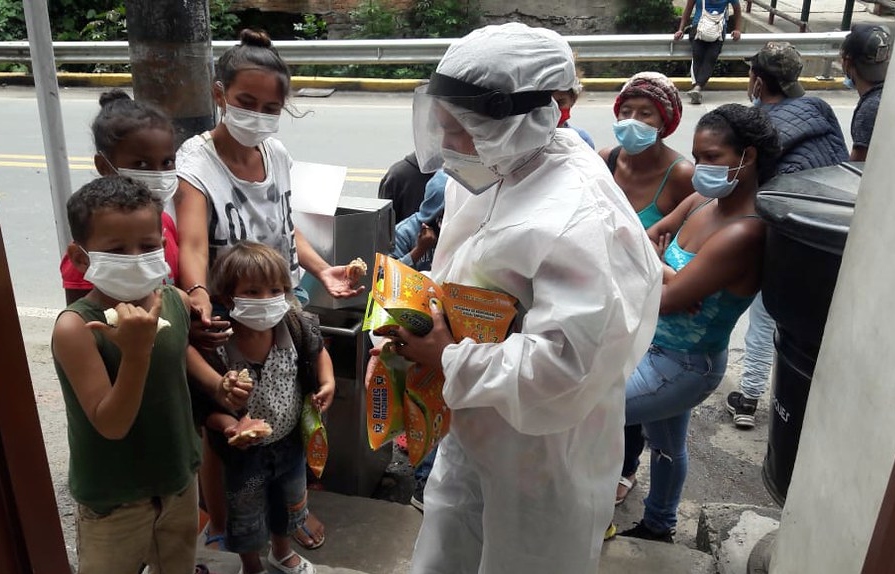2020 has been the year of the return to the past. It leaves us with the lesson of how vulnerable we humans are on Earth and the evidence that the planet does not need humanity to exist, but that it is necessary for the life of humanity. It is perhaps a tragic year for the global economy and therefore for the region, but beyond the macroeconomic equations, which sometimes dehumanize the data, it was 12 months of public health problems and a time that laid bare the most serious and urgent issues in Latin America.
For example, in Colombia the pandemic cohabits with failures at all levels. To begin with, the covid-19 opened a portal that exacerbated poverty in many peripheral regions of the country. It became the vector of atomized violence and even allowed criminal armed groups to recruit minors and irregular migrants. Such recruitment increased by 113% in the midst of the health emergency. In Colombia, the pandemic has been one of the many problems that kill citizens, has been one of the factors of social instability, has been one of the causes of economic failures and bankruptcies of companies, massive layoffs and exacerbated unemployment.
The National Picture
The national panorama, despite the government’s efforts for economic recovery and the timely achievement of the vaccine, is not satisfactory. Violence is expanding at a faster rate than any respiratory virus, it has coincided with the eve of an electoral year that has been capitalized by dangerous Creole populisms and social nonconformism that demands more rights and better liberties. The Colombian panorama, keeping its particular proportions, does not distance itself much from that of the region.
A 2020 and a pandemic that left in evidence that the quarantines were only for those who have a ceiling, a fact that deepened the reality of Colombia with almost 49% in monetary poverty and 14% in extreme poverty. In addition, the concern about the transformation of violence, new massacres, environmental complications, a political context immersed in polarization, and a government agenda aimed at mitigating the effects of the pandemic, even complicated the idea of advancing on different fronts of the implementation of the peace agreement.
There is no doubt that progress has been made, but it could have been more and better. Among other concerns is the fact that, in some areas of the country, there are criminal governments, that is, criminal groups that have constructed subway social contracts and have woven social and economic controls supplanting the State, or in some opportunities, functioning as it does. This situation is not exclusive to the pandemic, but it is a constant that has been aggravated by it.
A bleak future
The outlook for the coming year is not as encouraging as one would like. The destinies of nations do not depend exclusively on the rulers, but on social transformations. In other words, despite the fact that Colombia is part of the OECD, has macroeconomic growth forecasts of over 4% and is a global partner of NATO, people are still dying of hunger, violence and disease due to lack of quality hospital care. The more contrasts and gaps there are, the greater the structural problems that must be overcome.
2021 is configured as the year in which the real effects of 2020 will be seen, poverty will have increased, it will be a year of political coalitions, of social protests, of unpopular tax adjustments, of strategic decisions in the political and security orbit. A year in which, if there are no drastic changes in the social and political planes, not even economic, the next pandemics, which will surely come, will not give us a chance to think about the future.
Photo by Cristal Montanez Venezuela on Foter.com / CC BY-SA
*Translation from Spanish by Ricardo Aceves













